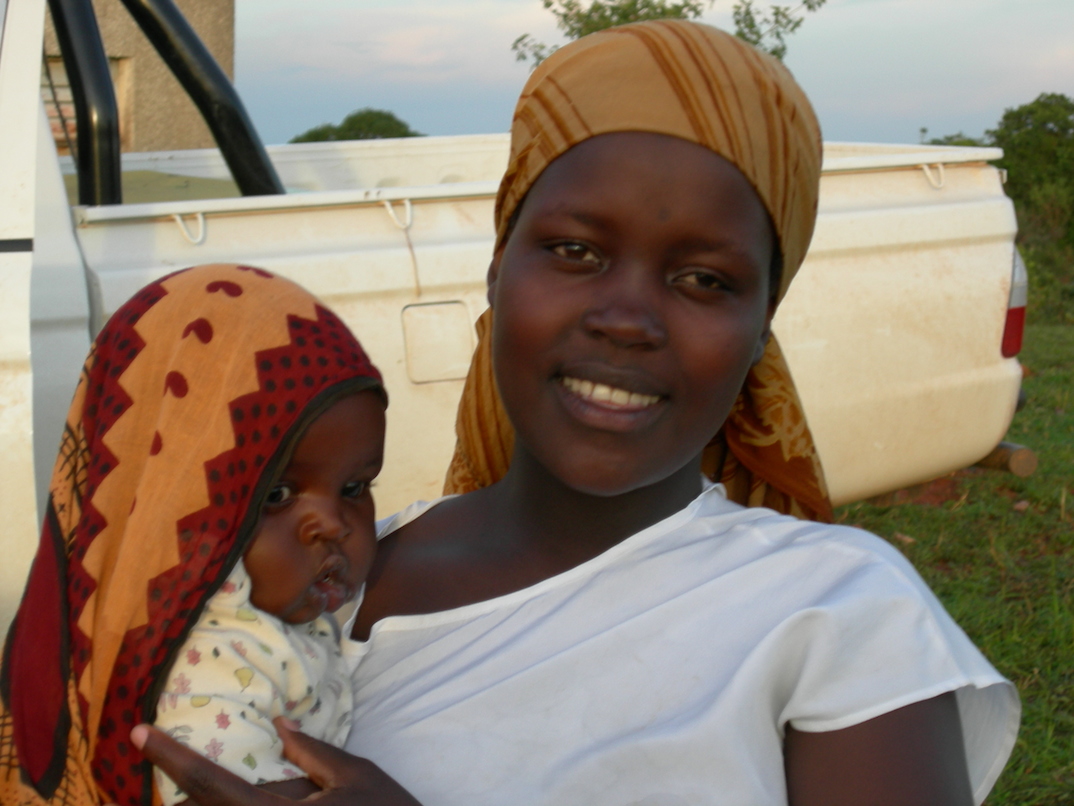Where I come from, the birth of a new child is usually cause for a celebration. Neighbors, friends, relatives and even strangers come to receive this newborn like he or she has come with a special message from God or the ancestors.
 Focus is often on the baby. And once they are “satisfied” with their viewing of the baby, attention then turns to the mother, who is usually still in pain due to childbirth. She is thus congratulated with a “kulika olutalo lwokuzaala” meaning “welcome back from the battlefield”.
Focus is often on the baby. And once they are “satisfied” with their viewing of the baby, attention then turns to the mother, who is usually still in pain due to childbirth. She is thus congratulated with a “kulika olutalo lwokuzaala” meaning “welcome back from the battlefield”.
Seeing the newborn wrapped up in those beautiful baby shawls, perfumed and powdered, I actually never associated childbirth with war, even though I have been told of how painful it actually is and how so many women and babies have died as a result.
A month into my Global Health Corps fellowship, I was privileged to witness childbirth for the first time. I was part of a team dispatched by ACODEV, my placement organization and Save the Children Uganda to record the number of maternal and neonatal deaths in health facilities in western Uganda. This experience was an eye-opener. Childbirth is indeed a battlefield for women in Uganda.
My first stop was Rwesande Health Center IV in Kasese district, where I met 22-year-old Gidnight Kabugho. She had traveled on foot for three miles with her mother-in-law to give birth. It was her first pregnancy and already her third day at the health facility. She had not yet seen the doctor. The doctor was away attending a five-day workshop and the senior nursing officer was off duty. So Gidnight was left in the inexperienced hands of student nurses.
Gidnight was experiencing prolonged labor. Her frail mother-in-law, Estelle Musokye, caressed her pregnant belly all the while encouraging her to be strong. “It will soon be over,” she told her softly. I could tell she was afraid for her daughter-in-law and grandchild because the longer she stayed in labor, the higher Gidnight and/or the baby were at risk of suffering complications and even death.
 Sister Agnes, a medical doctor at Kilembe Mines Hospital who had accompanied me, pulled some strings and managed to get the senior nursing officer who was off-duty to come examine Gidnight.
Sister Agnes, a medical doctor at Kilembe Mines Hospital who had accompanied me, pulled some strings and managed to get the senior nursing officer who was off-duty to come examine Gidnight.
“The baby is in distress,” she declared after examining her using the fetoscope.“If you are not taking her to the theater now, you better refer her to another hospital,” Sister Agnes advised the senior nursing officer who reached for her phone and called the doctor. “He says he is coming,” she told us and thereafter advised the nursing student to put Gidnight on drip.
We left the room and followed the senior nursing officer to her office to ask her a few questions regarding the registration of maternal and neonatal deaths in the audit books provided to health facilities by the Ministry of Health.
Yes, the health facility had the audit books but no deaths had been recorded in it – not because there had not been any deaths at the health facility but because they did not know how to enter data in the books.

“I will be frank with you. We do not know how to enter data in those books. We hardly have time because we are overwhelmed by work. We are three medical personnel at the health facility and we attend to more than 100 patients per day. Where will we get the time to fill data in that book?” she asks us.
This health facility serves more than ten villages and offers in-patient and out-patient services, surgeries, maternity services, immunization, and management of people living with HIV, on top of carrying out outreaches to hard-to-reach villages.
Four hours later, after teaching the senior nursing officer and her subordinate how to enter data in the audit books, the doctor was nowhere to be seen and Gidnight was still wrenching in labor pain.
We volunteered to transport her to another hospital where she could be attended to but she said no.
“I cannot afford it and my husband is away. This hospital is nearer to home,” she says.
We left her lurking in the jaws of death as we headed off to another health facility. Later that evening, I called the senior nursing officer to inquire about Gidnight. “Oh, the doctor arrived a few minutes after you had left. Gidnight gave birth by caesarian section to a healthy baby boy. She is in the maternity ward recovering,” she told me.
“Oh…please send her my regards and mukuliise okuzaala (welcome her from the battlefield for me),” I tell her. “Of course I will, she has survived the battlefield,” she tells me.




